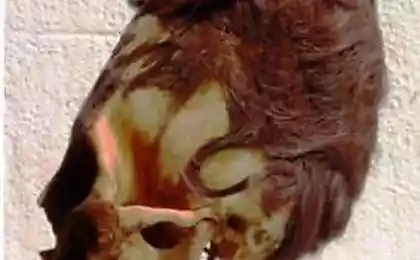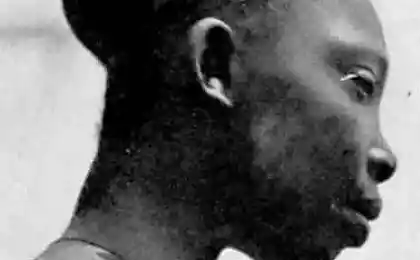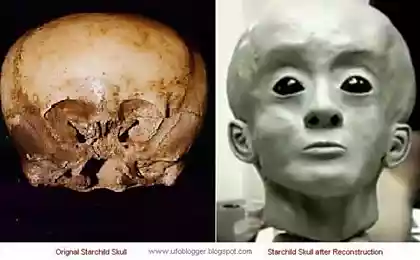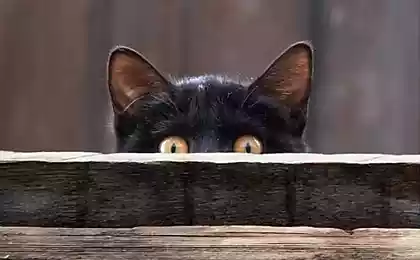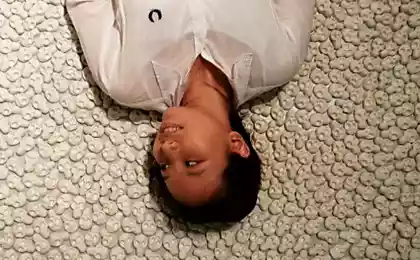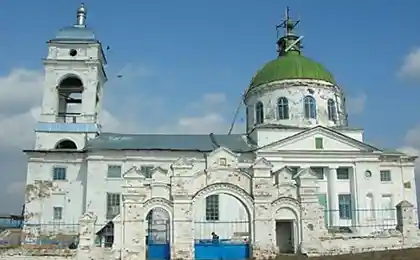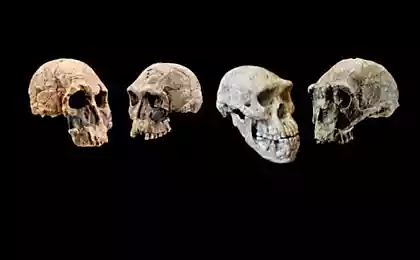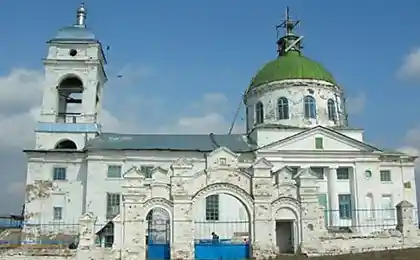1006
Bolivian Day Skulls
Every year in November, the Bolivians celebrate an unusual holiday called "Day of Skulls" or "Natitas". On this day the people of Bolivia brought to the cemetery for the dedication of the skull of their relatives, they cherish the house. Bolivians believe that the skulls of deceased relatives bring them good luck and are protective talismans.
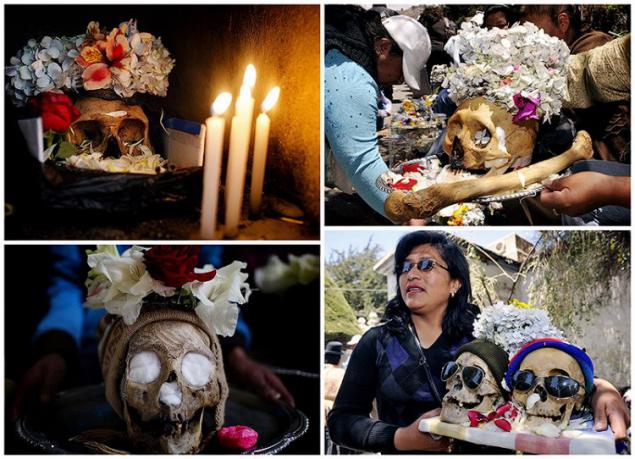
1. Bolivia - a country that has preserved and transformed the traditions of the Indians, - there are a lot of strange "Catholic" rites. For example, November 8 is celebrated the holiday known as the Day of skulls, or "Day natitas».
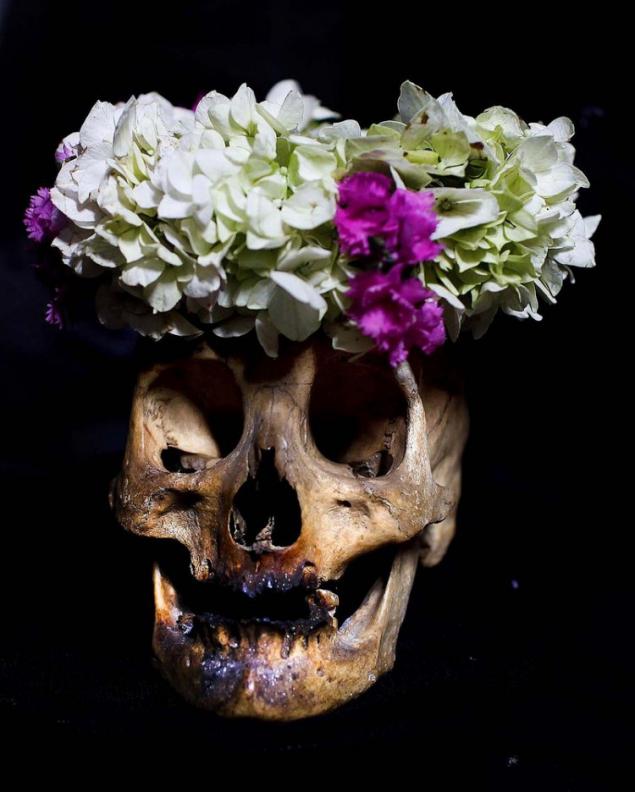
2. Bolivians believe that preserving the skulls of his dead relatives as amulets and blessing them once a year, in November, they thereby become more successful.
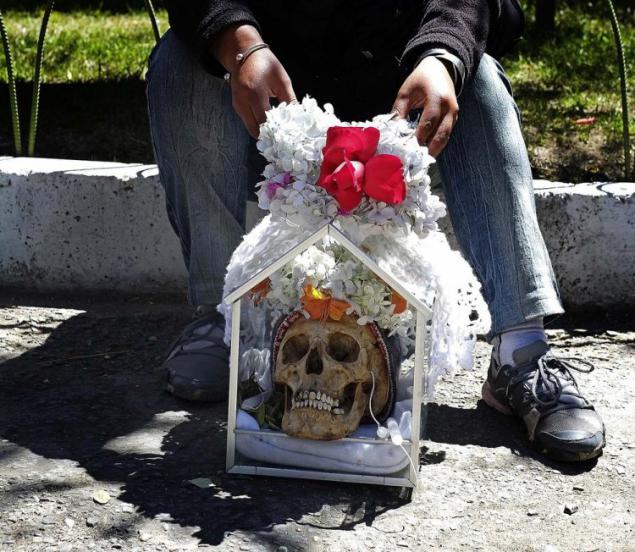
3. According to the experts, day skulls is a symbiosis of Indian rituals practiced here in the pre-Hispanic era, with Catholic beliefs.
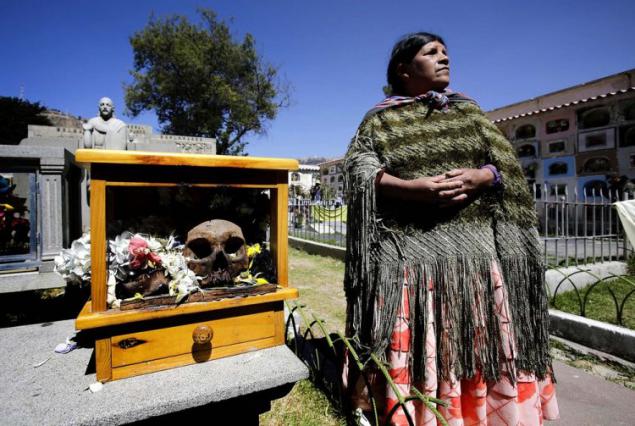
4. On the day of the skull decorated with flowers, garlands, beads, sunglasses and generally everyone what your imagination.
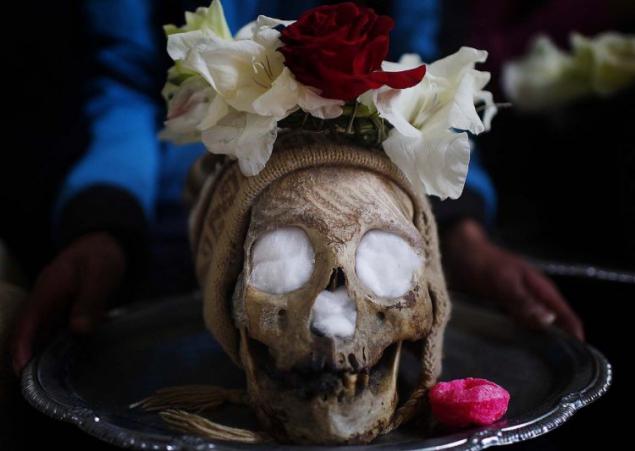
5. During the festival, grateful descendants also "treat" the skull, bringing them alcoholic beverages, cigars, and coca leaves.
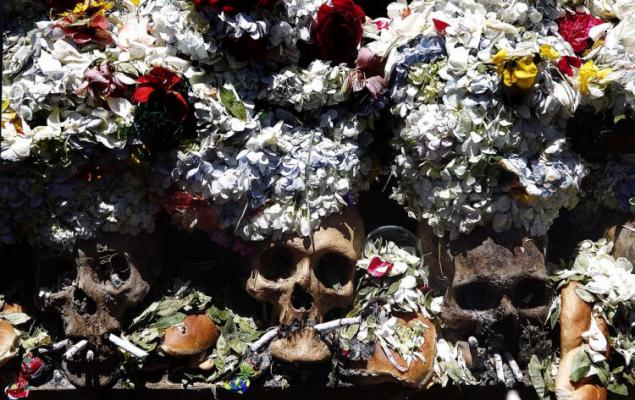
6. It is believed that the souls of the dead Natitas return to earth, and to ensure that they bring good luck, you need to get them to put the skull and at the entrance to the house.
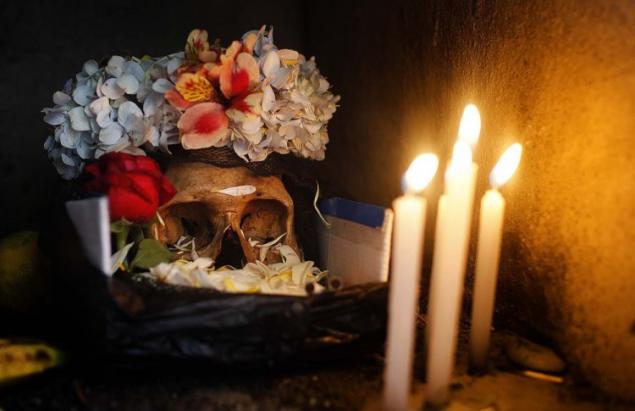
7. This holiday is analogous to the Mexican holiday "Day of the Dead", which is celebrated on November 1-2, and Day skulls celebrate on November 8-9.
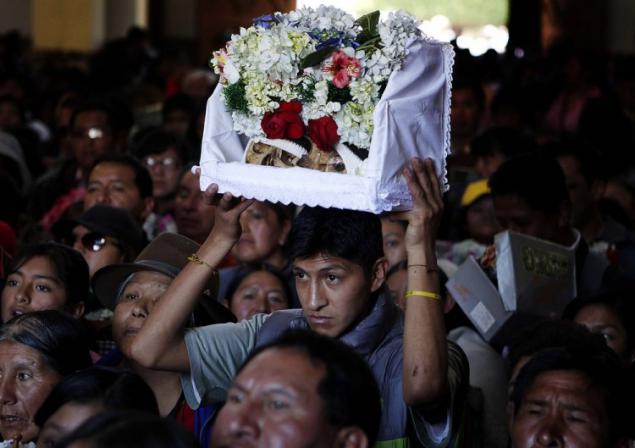
8. Bolivians believe that a person has seven souls, and one of them remains in the skeleton after burial. When other souls go to heaven, the remains of the dead are dug, skull bring home and start to take care of them. If you do not take care of the skull can bring misfortune to the family, cause a poor harvest, and even destroy a family. But if a skull is properly taken care of, the skull has a family shelter. Once a year, take out the skull into the street and go with them, usually at the city cemetery.
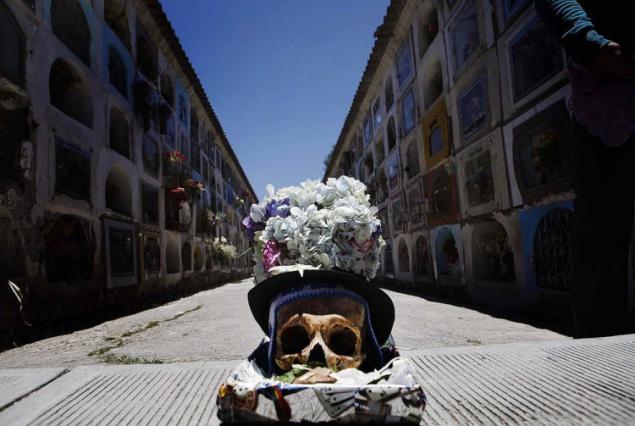
9. The Bolivian Catholic Church called on the faithful to stop using the attributes of human skulls during the celebrations, as the tradition originates from occult practices.
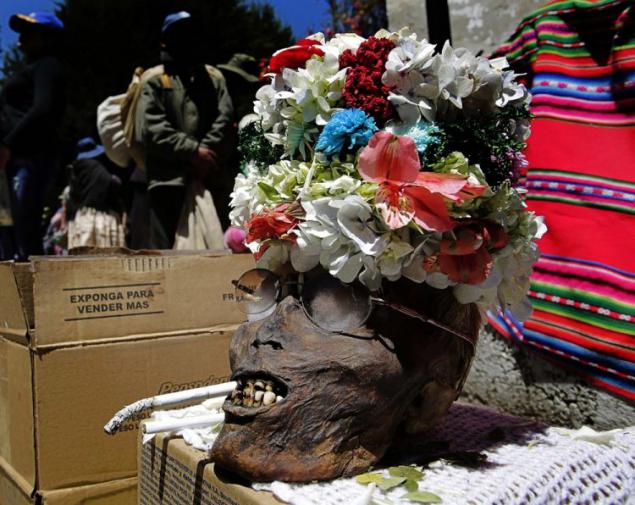
10. Archbishop of La Paz Edmund Abastoflor warns that many of the skull is actually owned by unknown people. Sometimes, obtained by the desecration of graves, after which they are stored, are presented as a gift, or even sold. The Archbishop urged those who practice Andean ritual, let the dead rest in peace.
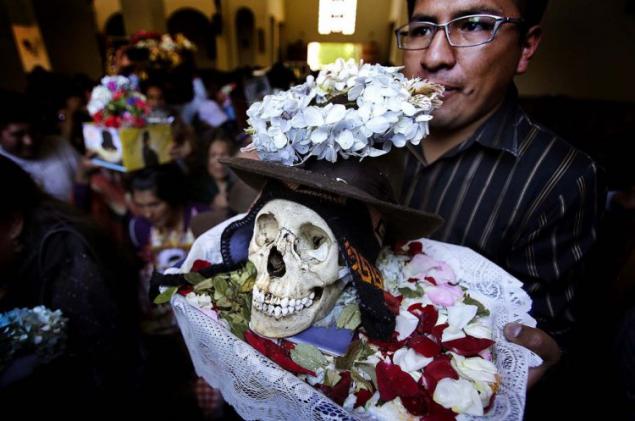
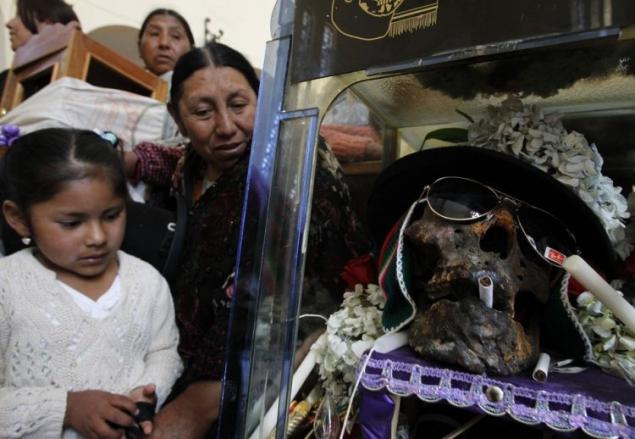
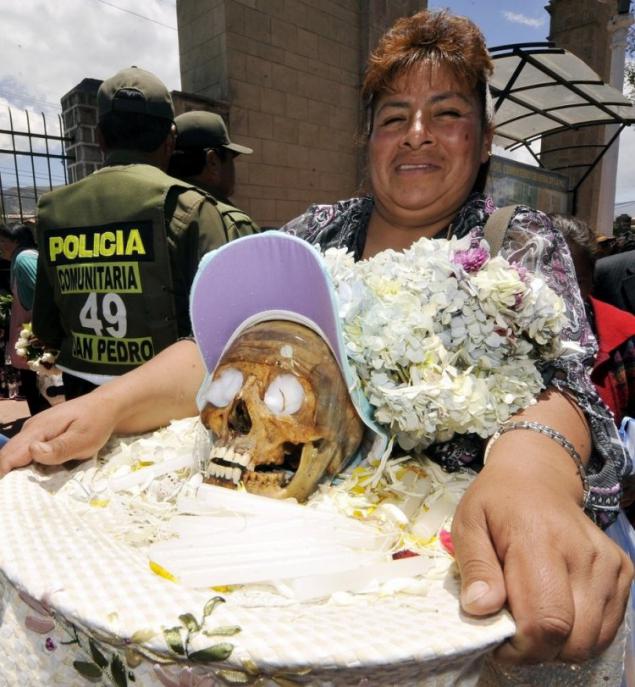
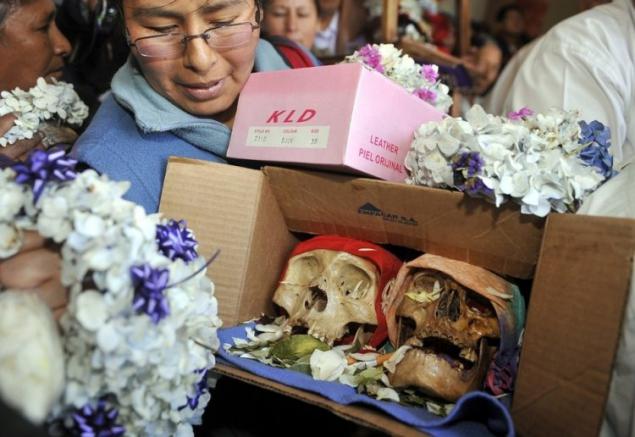
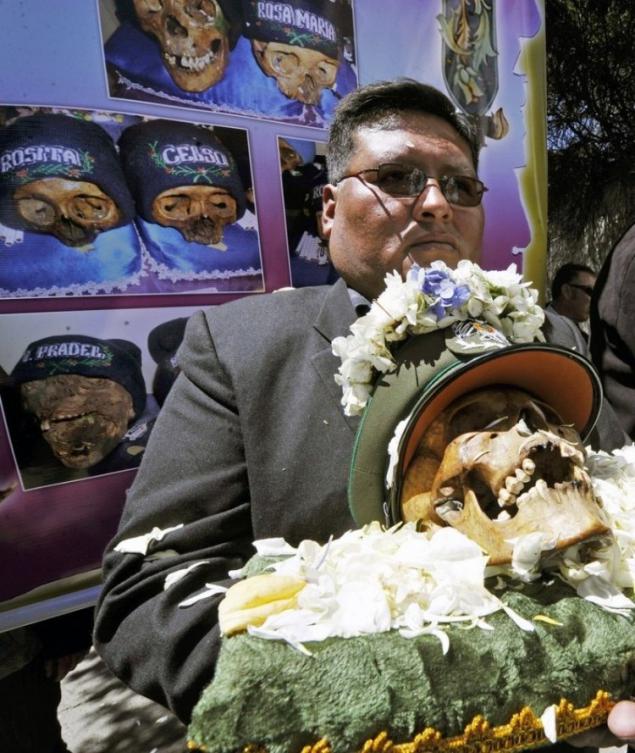
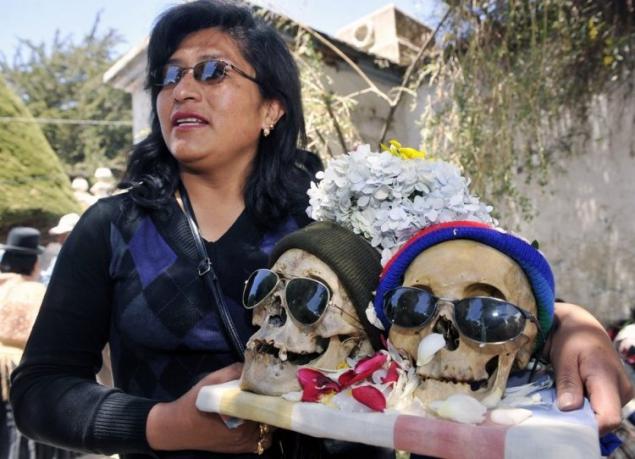
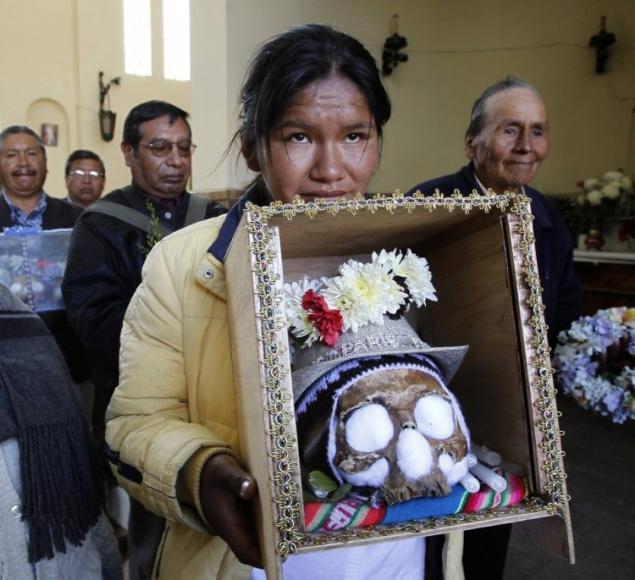
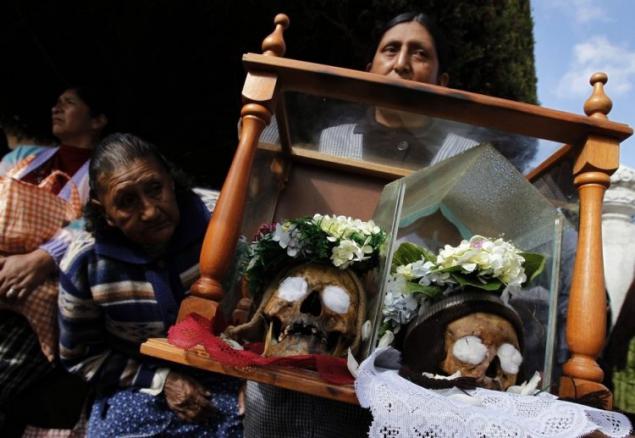
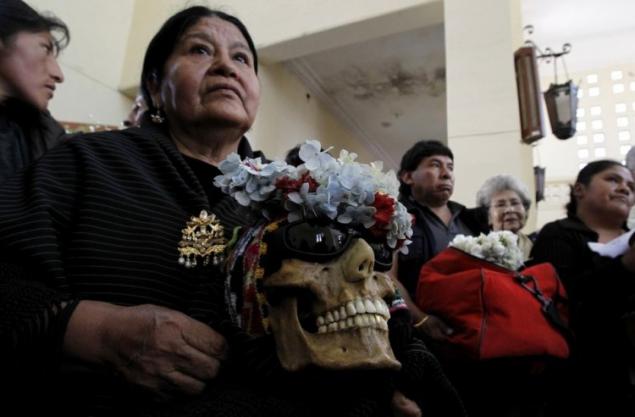
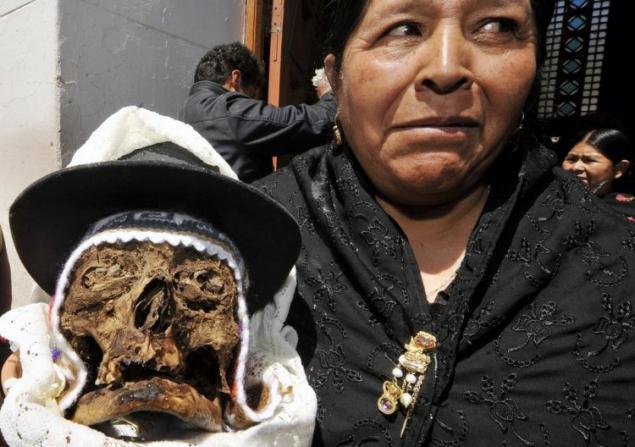
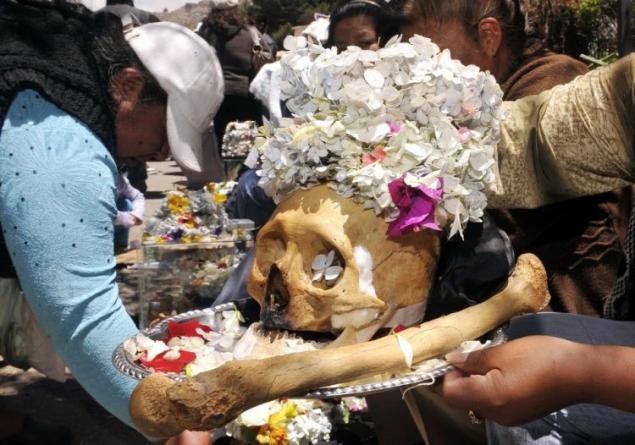

1. Bolivia - a country that has preserved and transformed the traditions of the Indians, - there are a lot of strange "Catholic" rites. For example, November 8 is celebrated the holiday known as the Day of skulls, or "Day natitas».

2. Bolivians believe that preserving the skulls of his dead relatives as amulets and blessing them once a year, in November, they thereby become more successful.

3. According to the experts, day skulls is a symbiosis of Indian rituals practiced here in the pre-Hispanic era, with Catholic beliefs.

4. On the day of the skull decorated with flowers, garlands, beads, sunglasses and generally everyone what your imagination.

5. During the festival, grateful descendants also "treat" the skull, bringing them alcoholic beverages, cigars, and coca leaves.

6. It is believed that the souls of the dead Natitas return to earth, and to ensure that they bring good luck, you need to get them to put the skull and at the entrance to the house.

7. This holiday is analogous to the Mexican holiday "Day of the Dead", which is celebrated on November 1-2, and Day skulls celebrate on November 8-9.

8. Bolivians believe that a person has seven souls, and one of them remains in the skeleton after burial. When other souls go to heaven, the remains of the dead are dug, skull bring home and start to take care of them. If you do not take care of the skull can bring misfortune to the family, cause a poor harvest, and even destroy a family. But if a skull is properly taken care of, the skull has a family shelter. Once a year, take out the skull into the street and go with them, usually at the city cemetery.

9. The Bolivian Catholic Church called on the faithful to stop using the attributes of human skulls during the celebrations, as the tradition originates from occult practices.

10. Archbishop of La Paz Edmund Abastoflor warns that many of the skull is actually owned by unknown people. Sometimes, obtained by the desecration of graves, after which they are stored, are presented as a gift, or even sold. The Archbishop urged those who practice Andean ritual, let the dead rest in peace.












